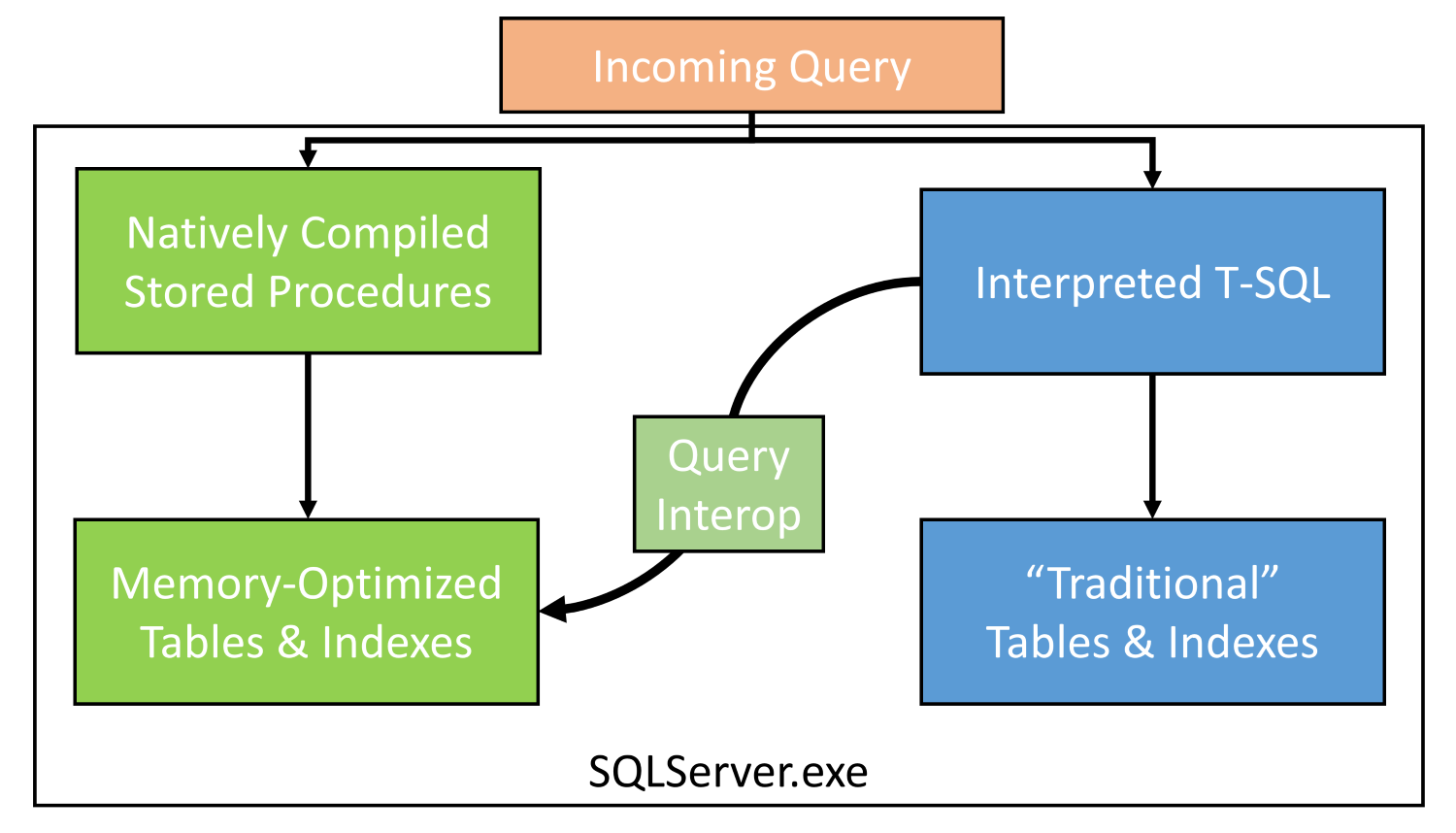Now that we have a memory-optimized table, the next logical step is to start querying the table and manipulating the data stored inside it.
We have two methods of interacting with these memory-optimized objects. Firstly, we can issue standard T-SQL queries and allow the SQL Server Query Optimizer to deal with accessing this new type of table. The second method is to use natively compiled stored procedures:

In the preceding figure, we can see a simplified diagram of a query that is either querying normal tables or memory-optimized ...

